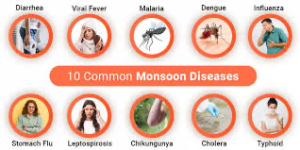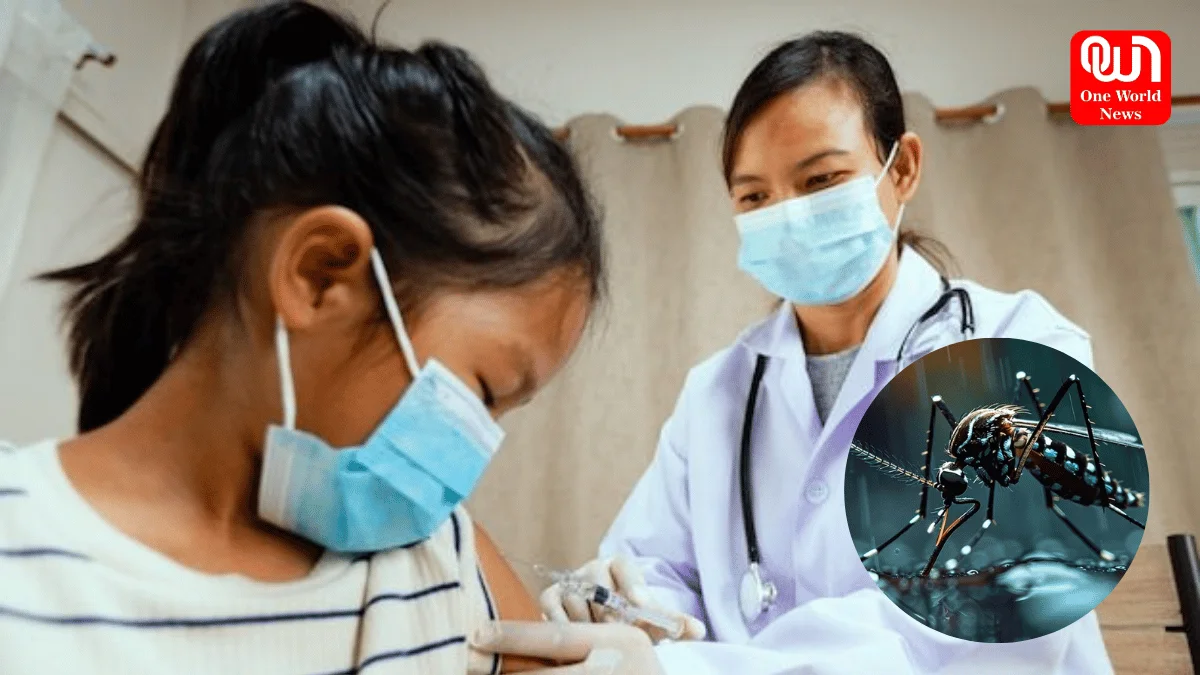Malaria to Chikungunya: 5 types of monsoon fevers, know prevention tips
You may enjoy the rainy season and avoid these common but dangerous monsoon fevers by being cautious and according to these prevention suggestions.
Malaria to Chikungunya: 5 types of monsoon fevers, know prevention tips
While the monsoon season provides much-needed respite from the intense summer heat, it also heralds an increase in illnesses spread by mosquitoes. Static water combined with humidity makes the perfect environment for mosquitoes to breed, which increases the incidence of several fevers. These are the top five monsoon fevers and how to avoid them to be safe.

Read more –Unlocking the Benefits: Why You must have a Fish Oil Diet
Malaria
That means, the disease commonly known as malaria is brought around by the Plasmodium parasite, spread through infected Anopheles mosquito. Viral symptoms include fever, chills, sweating and headaches; bacterial symptoms include fever, chills, sweating, and headache and sometimes coughing. In case left untreated, malaria has the potential of being fatal.
Prevention Tips:
– The use of mosquito repellents and insecticide treated bed nets.
– Get rid of sources of water around your compound that may bring mosquitoes to breed.
– Sleep under mosquito nets, wear long-sleeved clothes and use mosquito coils/ vaporizers inside the house.
Dengue
Dengue fever is a disease carried by the Aedes mosquito. This results in a high fever, severe headache, joint and muscular pain, rashes as well as bleeding. Sometimes, dengue can cause complications as serious as dengue hemorrhagic fever and also dengue shock syndrome.
Prevention Tips:
– Do not allow water to stagnate in and around your home, aviary and feeding area.
– Avoid using a perfume, and instead try using the mosquito repellent and also wear protective clothing such as long-sleeved shirts and trousers.
– Use insect screens particularly on windows and doors to reduce access of the mosquitoes into the house.
Chikungunya
Another vector borne viral disease is Chikungunya transmitted through Aedes mosquitoes. This one manifests features of sudden fever, immense joint and muscle pain, headache, nausea, fatigue, and rash. Inflammation of joints can go in for weeks and sometimes even in months.
Prevention Tips:
– When in the areas conducive to mosquito biting use repellent on the exposed area of the skin.
– It should be noted that screening and mosquito nets should be used to avoid contact with the said insects.
– Always replace the water in the coolers, pots and similar receptacles.
Leptospirosis
Leptospirosis is a water-borne disease that results from bacterial infections, which are gotten from urine of infected animals. They could be spread during the monsoon season, floods in particular disseminate the bacteria. Features consist of fever, headache, muscle aches, vomiting, jaundice, and the rash.
Prevention Tips:
– Do not walk through the floodwaters or wear appropriate shoes.
– Keep your house and the area around it clean, so that it would not attract mice.
– You should drink clean water or water that has been boiled or treated in some way.
Typhoid
Typhoid fever is an acute systemic infection that results from the infection by the Salmonella typhi bacteria which is usually through food and water. They include fever lasting seven days or more, weakness, stomach ache, head ache, and loss of appetite.
Prevention Tips:
– Avoid the consumption of tap water, and if, you are forced to take it, it should be either purified or boiled.
– Do not take any fried or processed foods from the road side shops and make sure foods are well cooked.
– Do wash one’s hands frequently and in particular before the time for consuming food and after using the washroom.
Read more –5 Foods Never to Pair with Your Tea: Unhealthy Food Combinations to Avoid
General Monsoon Fevers Prevention Advice
– Practice good personal hygiene by often washing your hands with soap and water. Maintain a dry and clean living space to stop mosquitoes from breeding.
– Maintain good hygiene and routinely dispose of waste.
– Increase your resistance to illness by eating a well-balanced diet high in fruits, vegetables, and liquids.
– If you suffer any of these feverish symptoms, get medical help right away.
You may enjoy the rainy season and avoid these common but dangerous monsoon fevers by being cautious and according to these prevention suggestions. Remain healthy and well!
Like this post?
Register at One World News to never miss out on videos, celeb interviews, and best reads.








